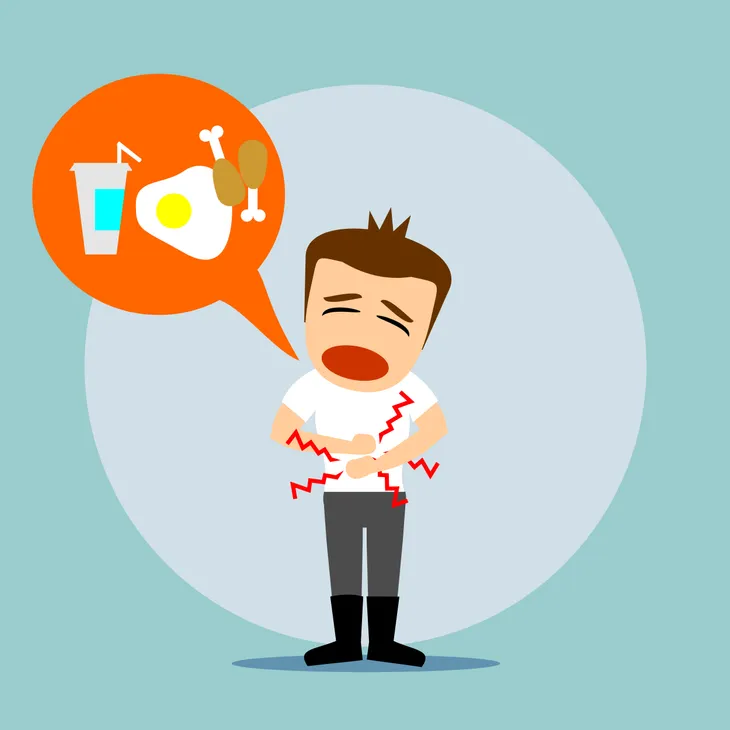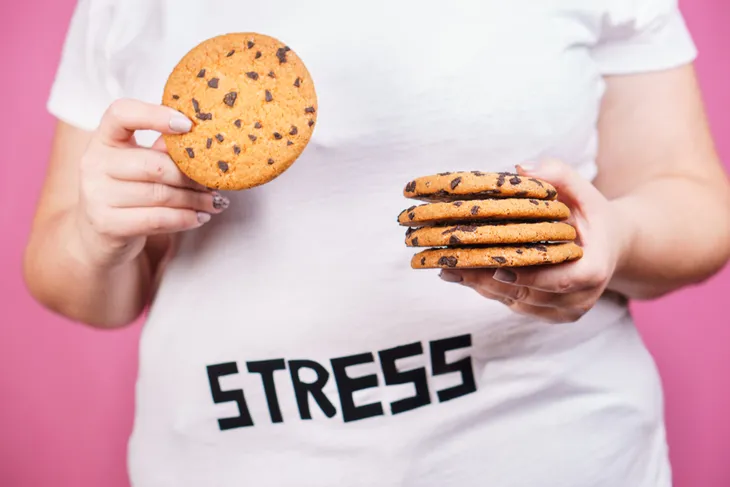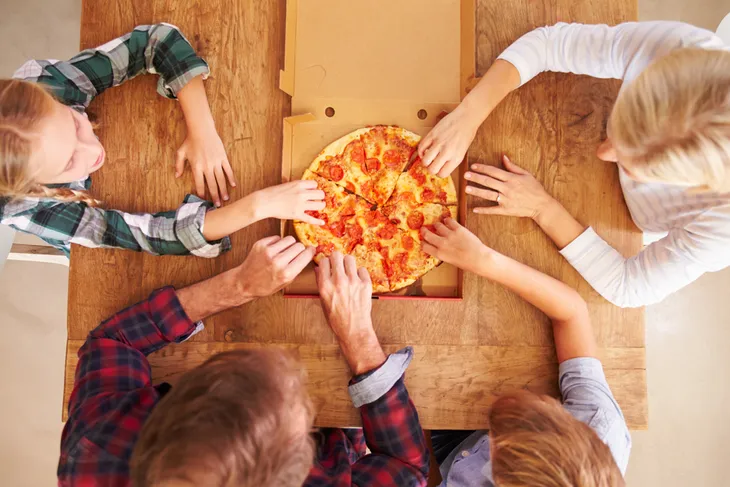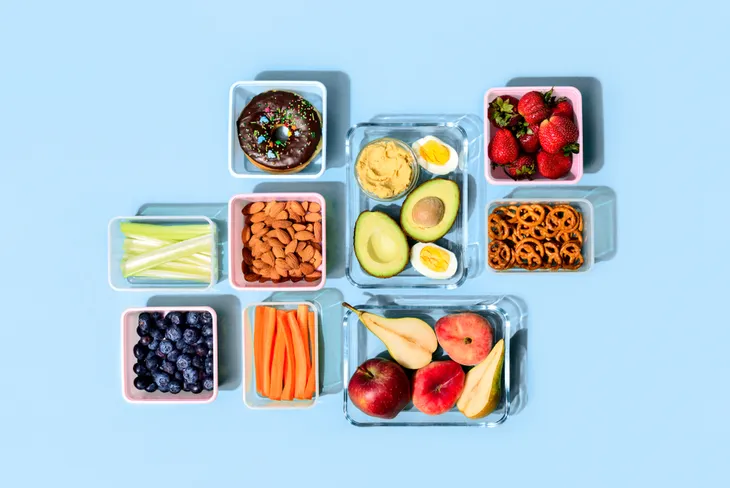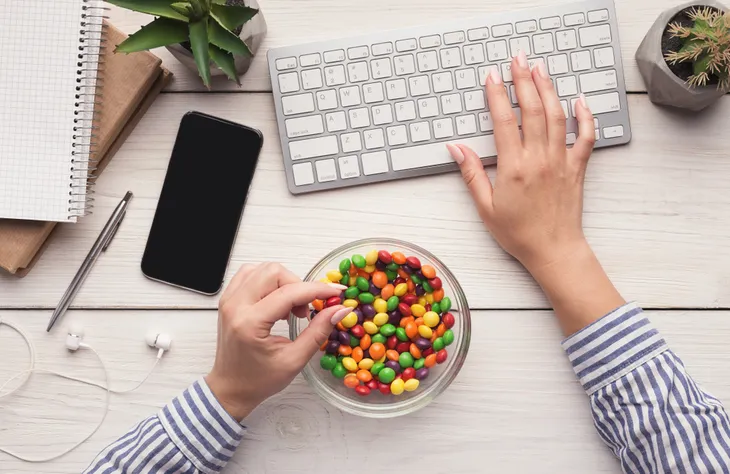Hunger, it often comes on suddenly and in ravenous proportions. However, aside from legitimate physical hunger, a reminder that your body requires vital nourishment, we often crave food for reasons that have more to do with our brains than our bodies. Stress, boredom, and mood can all cause us to become famished and affect our weight and health.
Let’s decipher the 10 most common types of hunger…
Nutritional Hunger
Nutritional hunger is a physical response to lack of fuel accompanied by symptoms of plunging blood sugar, irritability, weakness, headache, hunger pangs, rumbly tummy, and even shakiness if we wait to long for sustenance.
The important thing is to fuel up regularly throughout the day to avoid low blood sugar and the inevitable mid-afternoon snack binge that can occur if we wait to long to satiate real hunger. To satisfy physical hunger in a pinch, keep fresh pieces of fruit (i.e., apples or oranges) and healthy snacks (i.e., raw nuts) unhand in case of an emergency.
Stress Hunger
Think about what you tend to reach for when hunger is motivated by stress and anxiety? A chocolate bar, a bag of candy, a large order of fries—the brain takes over in times of stress hunger with a natural tendency to pick indulgent foods as a “coping mechanism.”
According to research published in the Journal of Consumer Psychology, we often eat during times of stress when we’re not hungry…to feed our feelings…when exercising or relaxation is what the body really needs.
Boredom Hunger
The need to eat when you have a lazy Tuesday night is what I like to call boredom eating. When monotony strikes many of us have a habitual need to fill that empty time and space with something…and that something is usually unhealthy snacking.
Instead, fill that tediousness with something other than food—paint your nails, go for a run, walk the dog, or call a friend to go for tea.
Distracted Hunger
There’s a reason why so many office desks and cubicles are littered with crumbs—distraction eating. It’s easy to get caught up in work with a bag of pretzels, and before you realize, you’re reaching for the bottom of an empty bag.
The same goes for eating and watching television or using the computer, when we’re distracted by outside stimuli, we literally go into what the American Journal of Clinical Nutrition calls a “food amnesia,” which causes us to absentmindedly consume calories, typically way more calories than we need to satisfy real hunger.
Emotional Hunger
Eating when emotional—angry, sad, depressed, or irritable—can be dangerous business. A study from Ohio State University links emotional eating to the tendency to make poor food choices in the form of sugar and Trans fatty snacks.
For instance, we often reach for the fastest and most convenient food pick-me-up, which often comes pre-packaged or via a fast food drive-thru.
Celebratory Hunger
Just drop into the nearest office on an anniversary, retirement, or birthday and you’ll see firsthand the effects of celebratory eating. With no shortage of special occasions, the modern day office is a constant barrage of donuts, birthday cakes, lunches out, and take out pizzas.
Food is a great pathway to connect with those we work with. However, indulging in every slice of cake and pizza that enters the office shouldn’t be your only means to commemorate the good things in life. Instead, start a new tradition of bringing co-workers a fruit bouquet, flowers, or a gift card to celebrate special occasions.
Visual Hunger
If you’ve heard the term “my eyes are as big as my belly,” you understand what visual hunger is and how it can cause you to eat for the simple fact that food is present. For instance, it’s hard to resist an open box of brownies or donuts in the lunchroom and there’s a tray of cookies left over from the lunch meeting. It’s almost a habit to take one even if you’re not hungry.
Instead, if you see food, leave the area and ask yourself if you’re really hungry. If the answer is no, skip the sweet. If it’s yes, take one and steer clear of the area for the remainder of the day.
 Source: Shutterstock
Source: ShutterstockAfternoon Snack Attack
We’ve already touched mid-afternoon as the time when a mid-afternoon snack attack rears it’s appetite. It could be legitimate hunger or it could be anticipation for the end of the workday.
Either way, we all succumb to it and rush to the vending machine. Instead, be proactive by tucking healthy snacks into your desk or work fridge (i.e., raw nuts, Greek yogurt and berries, or fresh fruit).
PMS Hunger
I don’t want to admit it either ladies, but in the days before “that time of the month” all my willpower goes out the window and I’m rushing to the nearest café for a baked goodie.
Blame PMS hunger on hormone changes, which bring on sudden ravenous hunger and cravings for sweet, salty, starchy, and decadent snacks. Rather than ignore it, be aware of PMS hunger cues and why they are occurring.
Instead of binging on a whole pint of ice cream, allow yourself a bit of something sweet (i.e., a small bowl of low fat frozen yogurt or a few squares of dark chocolate) to satisfy your indulgence and the desire will subside.
Procrastination Hunger
You have a big deadline or a huge essay due, but you can’t start without snacking first. However, you’re not hungry—your procrastinating! According to nutritionists at Seattle’s Mindful Nutrition, eating can feel productive in times of looming deadlines.
However, getting down to work instead of mindlessly snacking to postpone a project, will give you a healthier sense of accomplishment and satisfaction.

